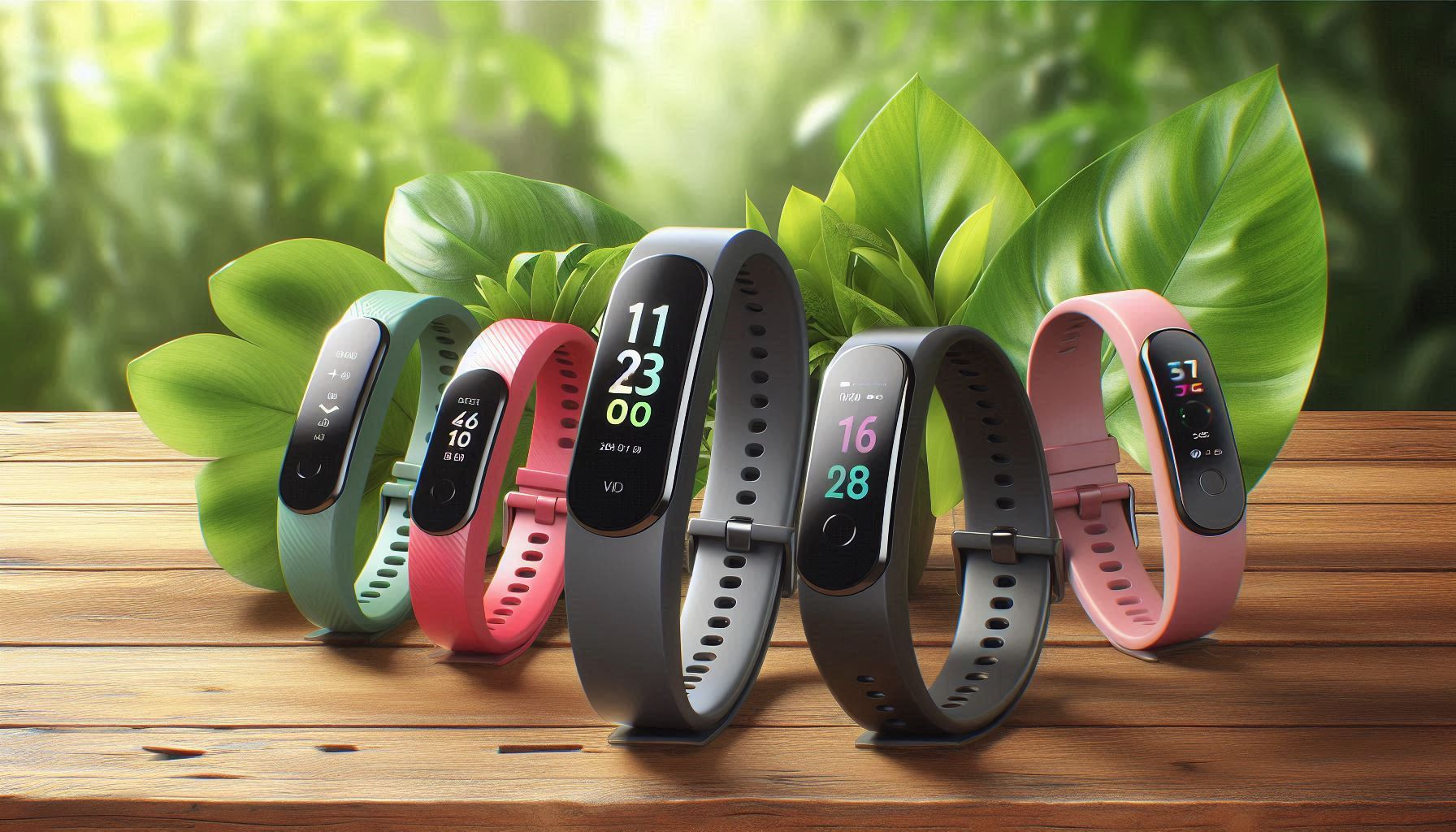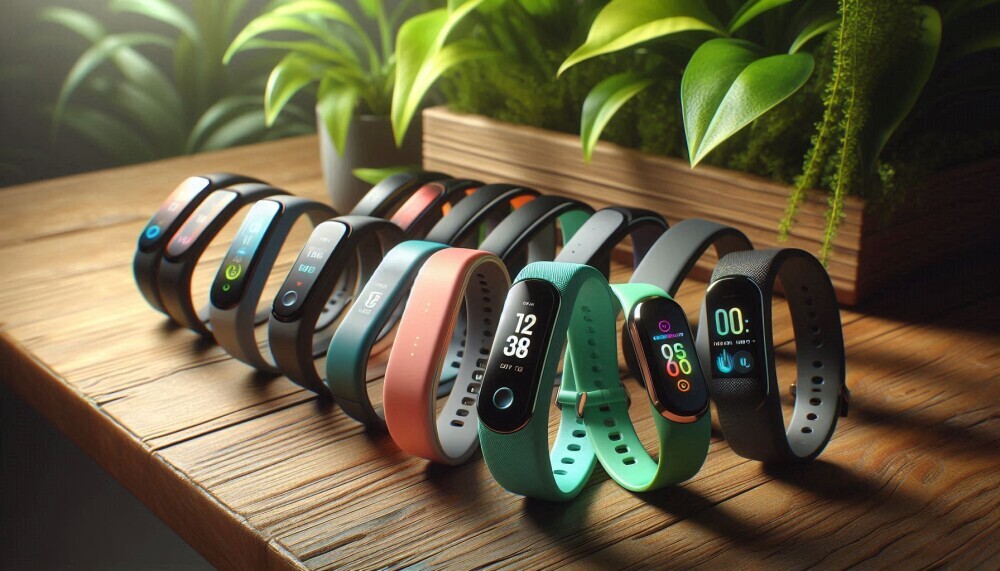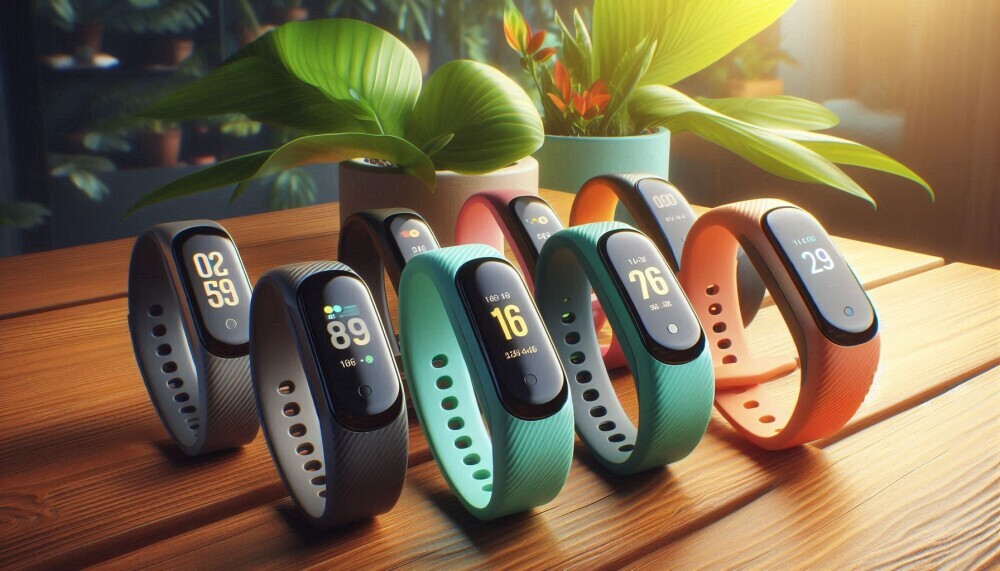The Best 5 Fitness Trackers For Biohackers And Data Geeks. That’s our topic for this blog article. Biohackers are an avid, tech savvy audience obsessed with optimising their bodies. They crave deep, granular data and love to compare the technical specs of sensors above all else. Let’s get started!
Introduction
In the modern world of fitness and wellness, tracking data is no longer just about steps or calories. For biohackers and data geeks, fitness trackers represent far more than just lifestyle gadgets. They are precision tools for understanding the body, analysing performance, and experimenting with routines that can optimize health, longevity, and athletic ability. These individuals thrive on deep metrics such as heart rate variability, oxygen saturation, recovery time, stress levels, and advanced sleep analysis. To them, numbers are not just statistics but insights into how the human body can be upgraded.
The market for wearables has responded to this growing demand. Today’s fitness trackers can provide detailed biometric data, integrate with advanced analytics apps, and offer features once reserved for medical or scientific research. Whether you are a professional athlete interested in fine tuning your training, a biohacker experimenting with lifestyle tweaks, or a health enthusiast who simply loves to understand how your body works, there are trackers that cater specifically to your data driven approach. In this article, we will explore the five best fitness trackers for biohackers and data geeks. We will examine their features, prices, benefits, pros, and cons while also looking at how to get the best from these devices.
The Best 5 Fitness Trackers For Biohackers And Data Geeks
1. Whoop 4.0
The Whoop 4.0 is a subscription based tracker designed for individuals who care deeply about recovery and performance data. It does not have a traditional screen but instead focuses on continuous monitoring and delivering insights through its companion app.
Key Features:
- Heart rate variability tracking for recovery optimization
- Strain and recovery scoring system
- Continuous sleep tracking with detailed analysis
- Skin temperature and blood oxygen monitoring
- Lightweight strap design for 24 hour wear
Price: Free with subscription starting around $30 USD per month
Pros:
- Extremely detailed recovery and strain insights
- Ideal for athletes and biohackers focused on performance optimization
- Comfortable to wear all day and night
- Long battery life with on the go charging
Cons:
- Requires ongoing subscription
- No traditional display for real time feedback
Best For: Biohackers and data enthusiasts who want continuous deep data on recovery, strain, and readiness without distractions.
2. Oura Ring Gen 3
The Oura Ring Gen 3 stands out for its unique form factor and advanced sleep tracking. This smart ring is lightweight, discreet, and perfect for those who want continuous health monitoring without wearing a bulky device on their wrist.
Key Features:
- Comprehensive sleep tracking with readiness score
- Heart rate variability and resting heart rate monitoring
- Body temperature tracking for health and recovery insights
- Blood oxygen monitoring during sleep
- Long battery life up to 7 days
Price: Around $300 USD plus optional membership plan
Pros:
- Discreet and stylish compared to wrist worn trackers
- Market leading sleep and recovery analysis
- Easy to wear for long periods
- Great companion app for detailed insights
Cons:
- Smaller dataset for workouts compared to wrist trackers
- Requires membership for full features
Best For: Data geeks and biohackers who want world class sleep data and discreet health tracking.
3. Garmin Fenix 7
The Garmin Fenix 7 is one of the most advanced multisport wearables available. Built for adventurers and athletes, it delivers enormous amounts of data with high accuracy. Biohackers will appreciate its in depth performance metrics and customizable profiles.
Key Features:
- GPS with multi band accuracy
- VO2 max, lactate threshold, and training readiness scores
- Heart rate variability tracking and recovery monitoring
- Pulse oxygen sensor for altitude and sleep data
- Solar charging options with long battery life up to 18 days
Price: Around $700 USD
Pros:
- Huge range of advanced fitness and performance metrics
- Extremely durable with premium build quality
- Long battery life even with heavy usage
- Excellent integration with third party apps and analytics
Cons:
- Expensive compared to other trackers
- Large design may not suit smaller wrists
Best For: Data enthusiasts who want the most detailed sports and biometric data in one powerful device.
4. Polar Vantage V3
Polar has always been a leader in heart rate monitoring, and the Polar Vantage V3 offers biohackers an impressive suite of tools. With highly accurate heart sensors and recovery insights, it is great for those who want precise biometric data.
Key Features:
- Advanced heart rate monitoring with Polar Precision Prime technology
- Training Load Pro and Recovery Pro metrics
- GPS tracking with accurate performance analysis
- Sleep Plus Stages with recovery insights
- Up to 8 days of battery life
Price: Around $500 USD
Pros:
- Excellent heart rate accuracy
- Strong focus on training and recovery balance
- Reliable GPS tracking
- Designed specifically for data driven athletes
Cons:
- Limited app ecosystem compared to Apple or Garmin
- Interface can feel less intuitive for casual users
Best For: Biohackers and athletes who prioritize heart rate accuracy and structured recovery metrics.
5. Apple Watch Ultra
The Apple Watch Ultra is Apple’s most advanced wearable, designed for athletes and explorers. For data enthusiasts, it offers a wide range of health tracking features, third party app support, and an always on display.
Key Features:
- Heart rate monitoring, ECG, and blood oxygen tracking
- Advanced workout modes including endurance training
- GPS with dual frequency for accurate tracking
- Wide third party app ecosystem for biohacking
- Up to 36 hours of battery life
Price: Around $800 USD
Pros:
- Extremely versatile with both health and lifestyle features
- Broad app support makes it highly customizable for biohackers
- Bright and durable display with rugged design
- Excellent accuracy for GPS and heart monitoring
Cons:
- Higher price point
- Battery life shorter than Garmin or Polar
Best For: Biohackers who want an all in one device with deep health insights and a robust app ecosystem.
Who Should Use These Trackers?
✔ Biohackers who love experimenting with routines and want data to guide decisions
✔ Data geeks who enjoy detailed metrics on health, performance, and recovery
✔ Athletes seeking to optimize training and monitor readiness
✔ Professionals tracking stress, sleep, and productivity for better focus
✔ Anyone who values precision data more than basic step counts
How To Get The Best From Your Wearable?
To maximize the benefits of your fitness tracker as a biohacker or data enthusiast:
- ✅ Set clear goals: Decide whether you want to optimize sleep, improve training, or monitor overall health
- ✅ Use advanced apps: Sync your tracker with apps that analyse HRV, stress, and recovery trends
- ✅ Wear it consistently: The more continuous data you collect, the more reliable your insights become
- ✅ Focus on recovery: Track sleep quality and rest as carefully as workouts
- ✅ Experiment with routines: Use your data to test diet, exercise, and lifestyle changes
- ✅ Review trends, not just daily data: Long term insights matter more than single day variations
6 Frequently Asked Questions
1. Which fitness tracker is best for deep recovery insights?
The Whoop 4.0 is best for continuous recovery tracking, focusing heavily on HRV and strain analysis.
2. What wearable gives the best sleep tracking?
The Oura Ring Gen 3 is widely considered the leader in sleep monitoring and readiness scoring.
3. Which device offers the most sports and performance metrics?
The Garmin Fenix 7 provides the broadest range of performance data with exceptional GPS accuracy.
4. Can I use these devices without subscriptions?
Yes, but devices like Whoop and Oura require memberships for full data access. Garmin and Polar do not.
5. Are these trackers suitable for everyday wear?
Yes. Apple Watch Ultra and Oura Ring are especially suitable for daily use with lifestyle features.
6. Do these wearables work for non athletes?
Absolutely. Biohackers, data geeks, and anyone curious about their health can use them to improve habits and gain insights.
Conclusion
For biohackers and data geeks, a fitness tracker is more than just a wrist accessory. It is a gateway to understanding the body’s rhythms, measuring stress and recovery, and experimenting with routines that can lead to greater health and performance. The market offers a variety of excellent options tailored to these needs.
The Whoop 4.0 is perfect for recovery focused athletes, while the Oura Ring Gen 3 excels in sleep and readiness tracking. Garmin Fenix 7 provides unmatched performance metrics, Polar Vantage V3 delivers heart rate precision, and Apple Watch Ultra balances health insights with everyday functionality. By choosing the right tracker and using it consistently, you can take your biohacking journey to the next level and unlock insights that will help you live smarter, healthier, and stronger.
Our Thanks!
We would like to express our sincere thanks to you for reading this article on The Best 5 Fitness Trackers For Biohackers And Data Geeks. By reading it, you are really helping our website to grow and we really do appreciate it. You might like to read a few of our other articles which are titled:
The Best 5 Wearables For Thrill Seekers. – The Best 5 Fitness Trackers For Outdoor Adventures
The Best 5 Fitness Trackers With GPS – Oura Ring Vs Fitbit: Which Fitness Tracker Wins?
Please let us know in the comments which fitness tracker or other wearable device you are currently using or plan to buy in the future!
**Here is a bit of transparency. Our website www.vertevia.com does contain affiliate links and Amazon links. So, if you did make a purchase through the website, we may receive a small commission. This is at no extra cost to you whatsoever. It’s just a way for you to support us as we continue to bring you top quality content**
All the best!
Eamon



